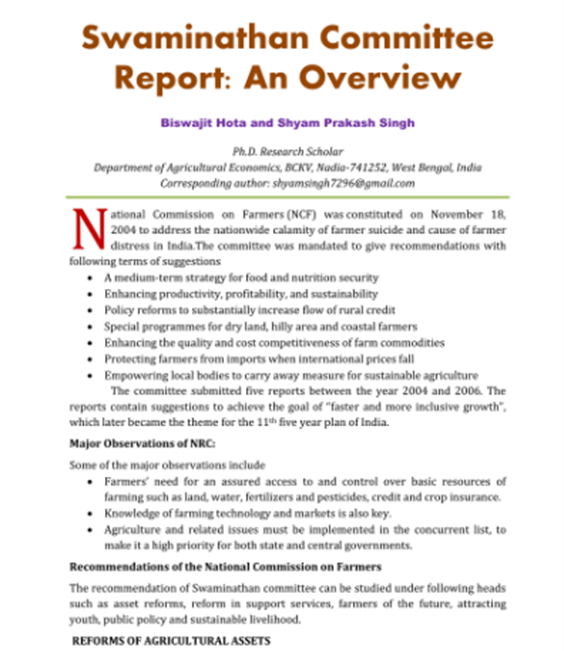PREVIOUS
Dr. M S Swaminathan: Father of Indian Green Revolution - Part 2
(இதன் தமிழ் வடிவத்திற்கு இங்கே சொடுக்கவும்)
Father of Indian Green Revolution
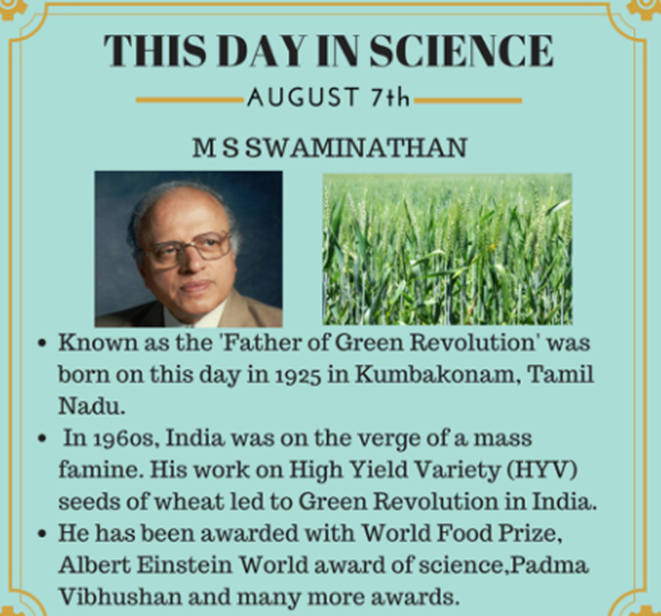
Scientific Contributions
- Swaminathan made significant contributions to the understanding of potato genetics and the development of frost-resistant potato varieties.
- He conducted research on the cytogenetics of hexaploid wheat.
- It was contributing to the development of high-yielding wheat varieties.
- He played a role in efforts to grow rice with C4 carbon fixation capabilities.
- It would improve photosynthesis and water usage.
- Swaminathan's work on radiation botany included the study of mutagens and the effects of radiation on plant responsiveness to fertilizers.
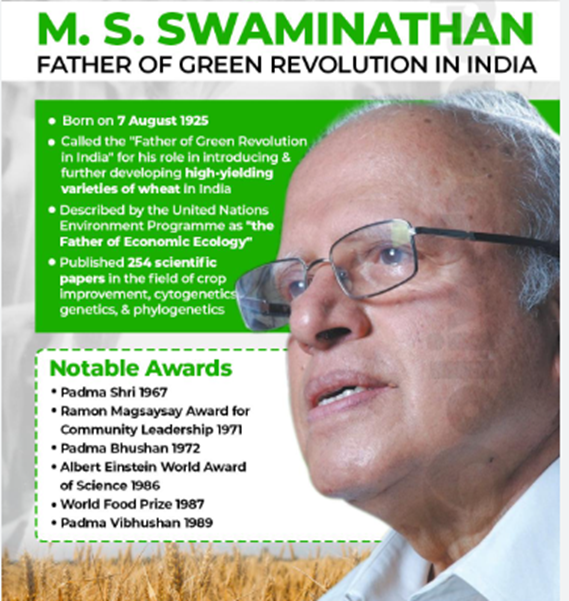
Farmers’ Welfare
- Swaminathan advocated for the welfare of farmers, emphasizing fair prices for agricultural produce and sustainable farming practices.
- As chair of the National Commission of Farmers from 2004 to 2006, the ‘Swaminathan Report’ probed the causes of farm distress.
- It continues to be a primary demand of farm unions across India.
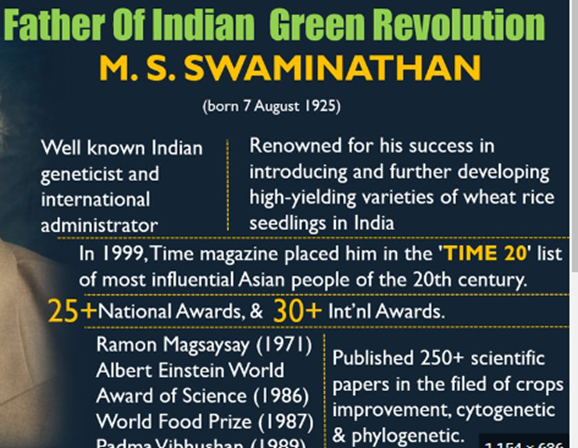
Protection of Plant Varieties and Farmers' Right Act 2001
- He played a pivotal role in developing the Protection of Plant Varieties and Farmers' Right Act 2001.
Alleviating Food Insecurity
- Spearheaded the Green Revolution in India
- Significantly boosting food production and ensuring food security
- Pulling the nation out of the 'Hunger Trap.'

Advocacy for Sustainable Agriculture
- Raised awareness about the significance of sustainable agriculture, genetics, and breeding to enhance crop varieties.
- Initiated programs like "lab to land"
- Promoted the practical application of research in agricultural practices.
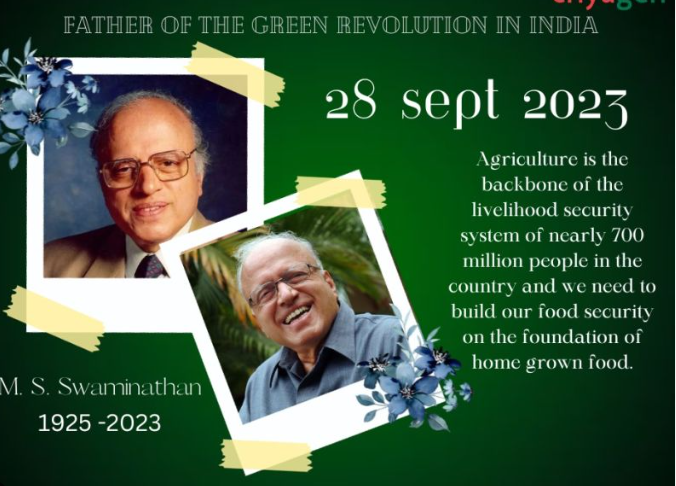
Diversified Agricultural Initiatives
- Emphasized nutrition, biofortification, increased funding for agriculture, precision farming, and the active participation of women in agriculture.
Contributions to Kuttanad and Kerala's Biodiversity
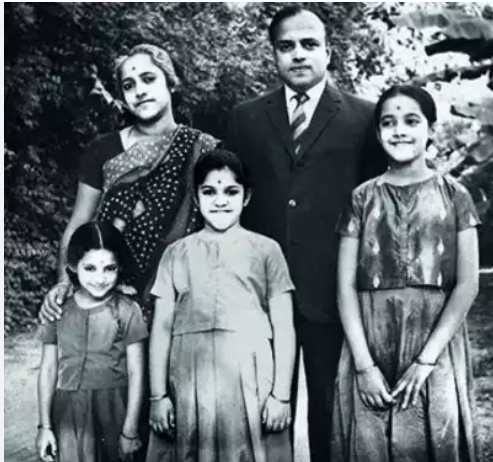
Kuttanad Package
- Dr. M.S. Swaminathan played a pivotal role in recommending the comprehensive Kuttanad Package, amounting to over ₹1,800 crores.
- This initiative was proposed by the M.S. Swaminathan Research Foundation (MSSRF).
- It advocated for declaring the wetland system as a 'Special Agricultural Zone.'
- The package focused on safeguarding water spread areas, upgrading infrastructure, and promoting the cultivation of short-duration paddy varieties.
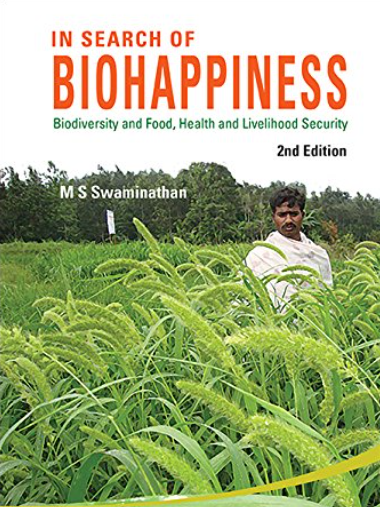
Biodiversity Conservation
- Dr. Swaminathan's contributions to biodiversity conservation were evident through the MSSRF's 2008 report on the Idukki District (known as the Idukki Package) and the establishment of the 'Community Agrobiodiversity Centre' in Wayanad.
- His commitment to biodiversity was underscored by his advocacy for public awareness, community participation, and economic incentives.
- It was encouraging the preservation of in situ and on-farm conservation traditions in Kerala.
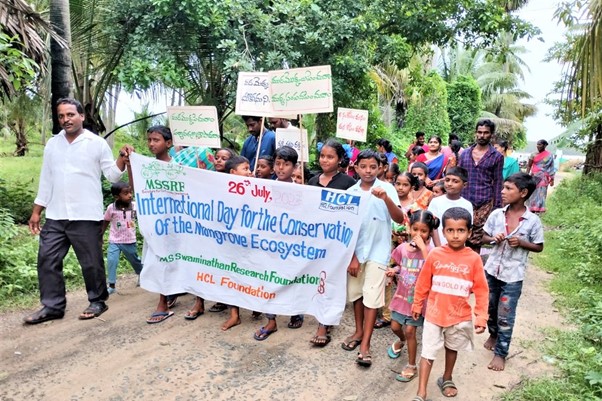
Important and notable Positions
- Between 1972 and 1979, he was the Director-General of the Indian Council of Agricultural Research (ICAR).
- While there, he formed the National Bureau of Plant, Animal, and Fish Genetic Resources of India.
- He also played a role in the transformation of the Forest Survey of India (FSI).
- In 1979, he was appointed the Principal Secretary of the Agriculture Ministry of the Indian government.
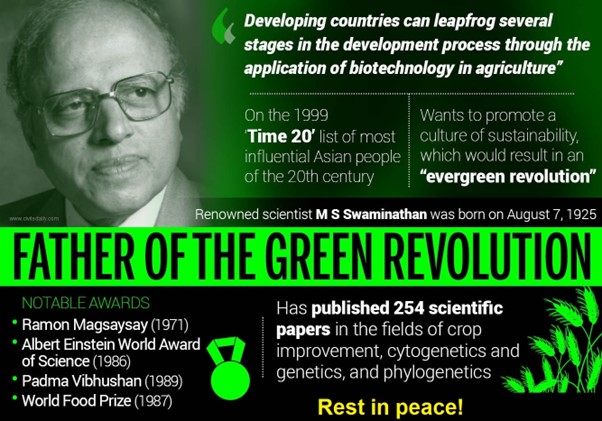
Independent Chairman of the Food and Agricultural Organization Council (1981–85)
- Swaminathan played a vital role in guiding global agricultural policies and strategies during his tenure as the Independent Chairman of the FAO Council.
President of the International Union for the Conservation of Nature and Natural Resources (1984–90)
- His leadership in this capacity contributed to global efforts in preserving biodiversity and natural resources.
President of the World-Wide Fund for Nature (India) (1989–96)
- Swaminathan’s leadership at WWF-India highlighted his commitment to environmental conservation and sustainable development.
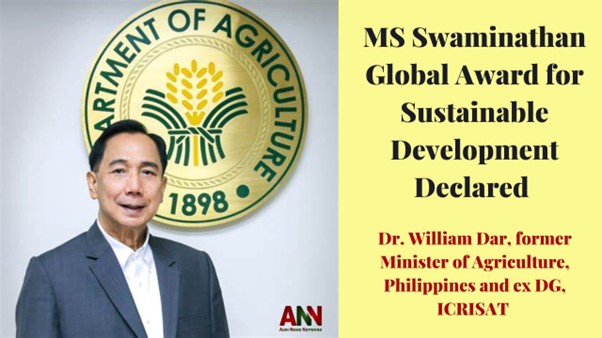
Director General of the Indian Council of Agricultural Research (ICAR)
- He served as the Director General of the Indian Council of Agricultural Research (ICAR).
- As the Director General of ICAR, Swaminathan spearheaded the critical agricultural research initiatives in India.
- He was shaping the nation’s agricultural landscape.
- There he played a crucial role in advancing agricultural research and education in India.
- He held leadership roles in international conservation and agricultural organizations.
- In 2001, he was Chairman, Regional Steering Committee for the India – Bangladesh joint Project on Biodiversity Management in the Sundarbans World Heritage Site.

- He has held many posts in many international organisations.
- He also advised the Indian government on agriculture-related issues several times.
- He initiated the concept of trusteeship management of Biosphere reserves.
- He executed the Gulf of Mannar Biosphere Reserve Trust.
- His leadership as director general of the International Rice Research Institute (IRRI) in the Philippines.
- It was instrumental in his being awarded the first World Food Prize in 1987.
- He was recognized as one of the highest honors in the field of agriculture.
- The United Nations Environment Programme has called him "the Father of Economic Ecology".
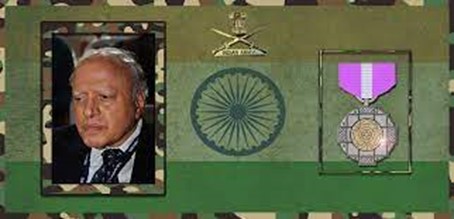
- He was a president of the Pugwash Conferences and the International Union for Conservation of Nature.
- He coined the term "Evergreen Revolution" in 1990 to describe his vision of "productivity in perpetuity without associated ecological harm.
- He was nominated to the Parliament of India for one term between 2007 and 2013.
- During his tenure he put forward a bill for the recognition of women farmers in India.
Accolades, Awards and recognition
- He has received numerous accolades and international and national awards for his outstanding contributions to agriculture.
- He received the Shanti Swarup Bhatnagar Award in 1961 for biological sciences.
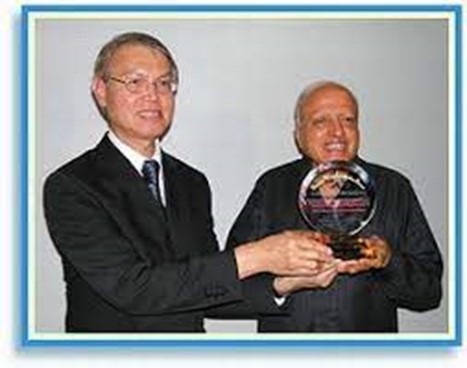
- He has also been conferred with the Padma Shri (1967), Padma Bhushan (1972) and Padma Vibhushan (1989), three of India’s highest civilian honors.
- It is including being honored as the first World Food Prize Laureate in 1987 for his contributions to India’s wheat and rice production.
- He received various international honors including the Ramon Magsaysay Award (1971) and the Albert Einstein World Science Award (1986).
- He also received the UNESCO Mahatma Gandhi Gold Medal in 1999.
Important committees headed by the MS Swaminathan
- MS Swaminathan Commission is also known as the National Commission on Farmers.
- Its recommendation encompasses a wide range of measures to address the challenges faced by farmers in India and promote sustainable agriculture.
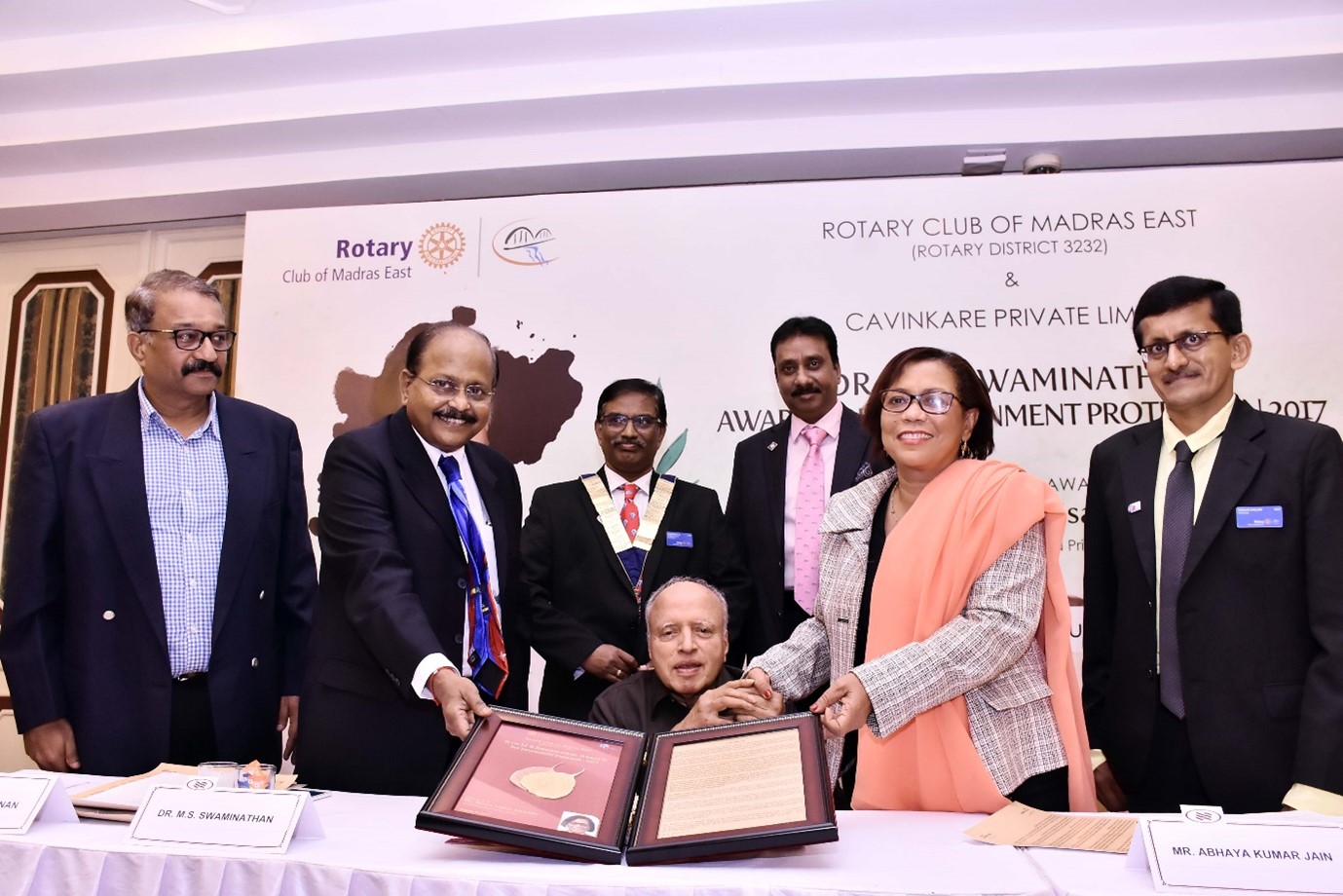
Key recommendations
Increase in Public Investment
- There should be a substantial increase in public investment in agriculture-related infrastructure, including irrigation, drainage, land development, water conservation, research and development, and road connectivity.
Enforcement of MSP
- The commission emphasizes the importance of enforcing Minimum Support Prices (MSP) throughout the country to provide a safety net for farmers and protect their interests in the face of globalization.
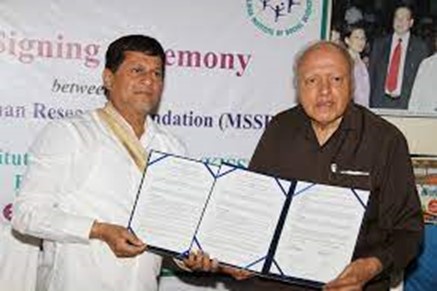
C2+50%
- The commission recommends setting MSP at a level that provides a 50% margin over the comprehensive cost (C2).
- It includes imputed costs of family labor, rent of owned land, and imputed interest on owned capital.
One Nation-One Market
- To address problems related to cartelization among traders, the commission suggests establishing a unified national agricultural market.
- That is known as “One Nation-One Market.”
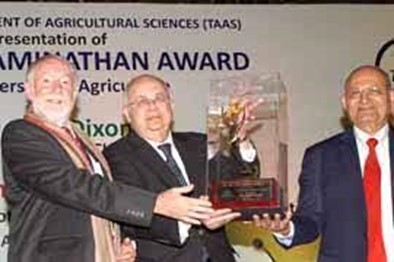
Market Development
- It advocates the development of domestic and international markets for local produce and simplification of the movement of goods by abolishing road tax and local taxes.
Land Reforms
- The commission recommends distributing surplus and wasteland.
- It aims at preventing the diversion of prime agricultural land and forests for non-agricultural purposes.
- It is ensuring grazing rights and seasonal access to forests for tribals and pastoralists.
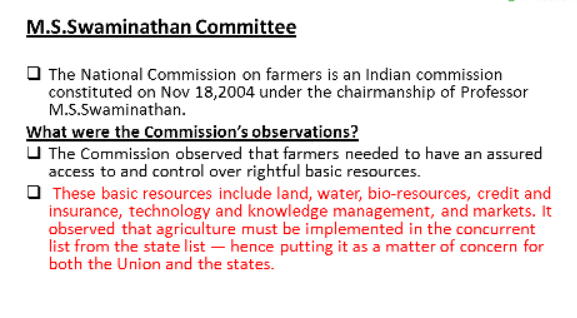
National Land Use Advisory Service
- Establish a service that can link land use decisions with ecological, meteorological, and marketing factors on a location and season-specific basis.
Regulation of Land Sale
- Create a mechanism to regulate the sale of agricultural land based on factors like land quantity, nature of proposed use, and buyer category.
Water Management
- Promote sustained and equitable access to water
- Increase water supply through rainwater harvesting and aquifer recharge
- Invest substantially in the irrigation sector.
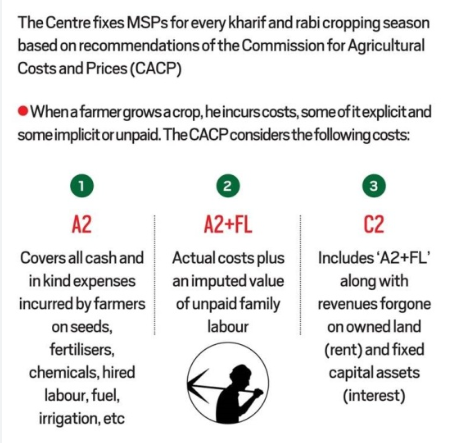
Credit Access
- Expand access to formal credit systems for the poor
- Reduce the interest rate for crop loans.
- Implement debt recovery moratoriums during distress situations.
Agriculture Risk Fund
- Establish an Agriculture Risk Fund to provide relief to farmers in the aftermath of natural calamities.
Kisan Credit Cards for Women Farmers
- Issue Kisan Credit Cards to women farmers with joint ownership rights.
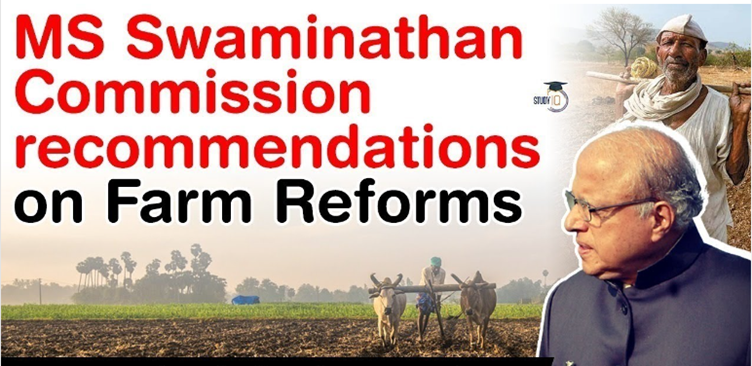
Crop Insurance
- Expand crop insurance coverage across the country and all crops, with reduced premiums
- Creation of a Rural Insurance Development Fund.
Livelihood Promotion
- Promote sustainable livelihoods for the poor by improving financial services, infrastructure, human development, and business development services.
Healthcare
- Provide affordable health insurance
- Revitalize primary healthcare centers, with a focus on suicide hotspot locations.
